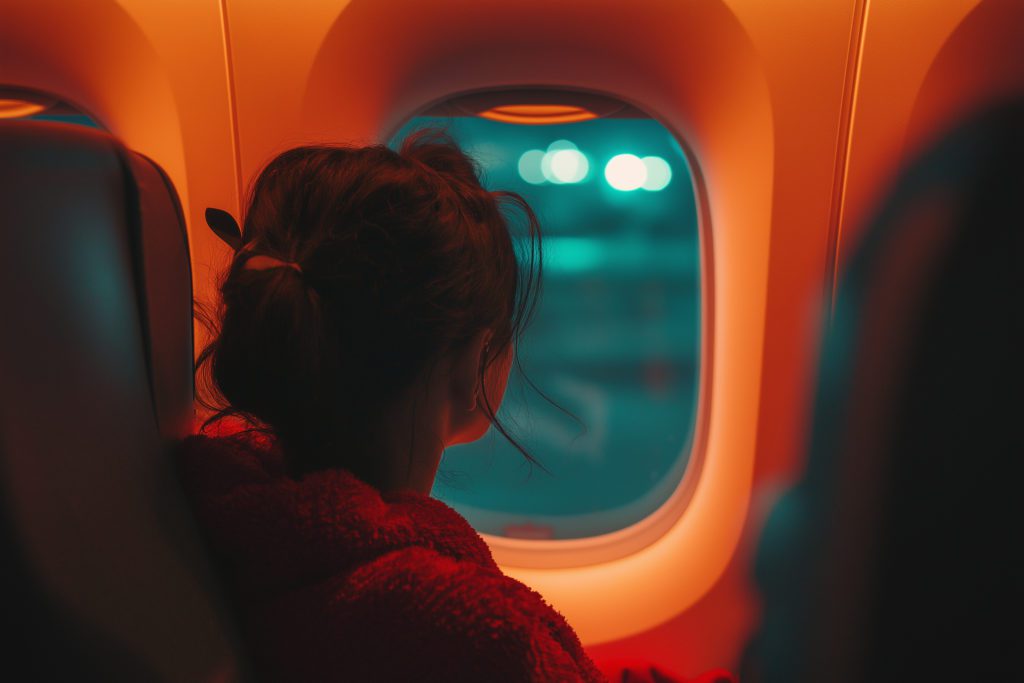
How Do Athletes Deal with Jet Lag? 7 Strategies for Peak Performance
Uncover expert strategies on how athletes deal with jet lag to maintain peak performance. Click through to our guide filled with tips and nutrition advice.

An athlete’s guide to staying on top of their game (and sleep)
Crossing time zones is an inevitable part of your life as an athlete, as routine as your daily workouts. But when your internal clock is messed up, how do you ensure it doesn't knock your performance off track?
We'll look at effective strategies on how athletes deal with jet lag, focusing on the key role that managing sleep plays in maintaining your competitive edge. Whether you're sprinting, swimming, or setting up for a serve, these insights will help you keep your performance peak—no matter where in the world you compete.
How jet lag impacts performance
Jet lag, or desynchronosis, is what happens when your internal clock gets thrown off kilter from zipping across time zones. It's a temporary sleep disorder that scrambles all sorts of body functions, including hormone release, body temperature, and even your mood and mental sharpness.
Here are some of the commonly reported symptoms:
- Sleep problems such as not being able to fall asleep or waking up early
- Daytime fatigue
- Inability to focus or function at your usual level
- Stomach problems such as constipation or diarrhea
- A general feeling of not being well
- Mood changes
For athletes, it can make or break performance. Think about it: if your sleep is choppy, your reaction times might slow, your endurance could dip, and your overall alertness may dwindle—all of which are bad news if you need to be on top of your game.
On the mental front, things like focus and strategic thinking get hit, too, which can be a major setback in sports that need quick decision-making or intense concentration. Plus, messing up your circadian rhythm can throw off your eating and metabolism, making it harder to manage energy levels.
That’s why getting a handle on jet lag is more than just adjusting to a new time zone; it’s about fine-tuning your body’s entire system to line up with local time as seamlessly as possible.
Strategies for athletes to manage jet lag
When it comes to staying on top form across time zones, a little planning and some smart, science-backed strategies can go a long way. Here’s how athletes can keep jet lag from knocking them off their stride:
- Ease into the new time zone
Start tweaking your sleep schedule a few days before you fly out. Heading east? Tuck yourself in a bit earlier each night. Westward bound? Push bedtime back. This pre-trip adjustment can soften the blow of a new time zone. - Let there be light (or not)
Light exposure is key to resetting your internal clock. If you're adjusting to an earlier time, soak up some morning sun. If you're delaying your clock, bask in the evening light. Some gadgets and apps can even help mimic the right light for your needs, which can be a game-changer. - Consider melatonin
This sleep-regulating hormone can be a quick fix for aligning your sleep cycle with local time. A small dose at bedtime might just do the trick, but it’s wise to chat with a doctor before starting. - Track your sleep
Sleep tracking apps are a solid way for athletes to see how well they’re adjusting. These can show if you’re getting enough deep sleep and help you tweak your routines in real-time. - Hydrate well and eat at the right time
Drink plenty of water, especially while flying, since dehydration can make jet lag worse. Try to sync your meals with your destination's local time too—dining as locals do can help your body clock adjust. - Lean on expertise
Tips from pros like sports sleep coaches suggest planning your travel schedule carefully—consider flight times and even the direction of your travel. Allow a few days at your destination before competing to acclimatize comfortably. - Maintain a comfortable body temperature
Traveling to a hotter climate? Keep cool and comfortable by choosing lightweight, breathable clothing and adjusting your room's air conditioning. For optimal sleep, aim to keep your sleeping environment around 65°F (18°C).
Using these strategies not only helps you manage jet lag but also ensures you're all set to perform at your best, no matter where in the world you are competing.
Who's most at risk for experiencing jet lag?
Not all athletes face the same level of challenge when it comes to jet lag. As demonstrated by research, certain factors can make some more vulnerable than others, impacting how quickly they can bounce back to peak performance after crossing time zones. Here’s what contributes to these differences:
Travel direction
Jet lag symptoms tend to be more severe when traveling east. This is because traveling east shortens the day, requiring your body to adjust more abruptly to a quicker onset of evening. In contrast, traveling west extends the day, which is more in line with the body's natural tendency to have a slightly longer than 24-hour cycle.
Number of time zones crossed
The more time zones you cross, the greater the disruption to your circadian rhythm. Athletes traveling eastward, especially across multiple zones, often experience harsher jet lag symptoms and require more time to adjust.
Chronotype
Your natural sleep preferences also play a role. Morning people, or "larks," typically find it easier to adjust when traveling east, while night owls have an easier time heading west.
Physical condition
Athletes in peak physical condition can generally adapt to new time zones faster than those who are not. Fitness supports faster synchronization of the sleep-wake cycle to new local times.
Age and experience
Older athletes might struggle more with jet lag. Why? Because their circadian rhythms are less flexible. Conversely, seasoned travelers often develop strategies that help them adjust more quickly, potentially reducing the severity of jet lag symptoms.
Recognizing these risk factors can help athletes and coaches plan more effectively for international competitions, ensuring strategies are tailored to individual needs for the best performance outcome.
Jet lag game plan for athletes
Navigating through different time zones doesn't have to throw you off course. Adjust your sleep schedule with the help of a sleep tracking app, embrace the power of light exposure, and maybe even use melatonin if it suits you. There’s your toolkit for tackling jet lag head-on. So, lace up and apply these tips to ensure that when it's game time, you're ready to perform at your best, no matter where you are in the world.

Written by
Georgia Austin
Professionally trained copywriter, editor, and content marketing strategist with over 7 years of experience—working with brands like Nike, Siemens, Toshiba, Tommy Hilfiger, Culture Trip, and Klook.
Download Pillow
Get help
Press & News
Legal
Connect
X (Twitter)
Company
Copyright © Neybox Digital Ltd.


